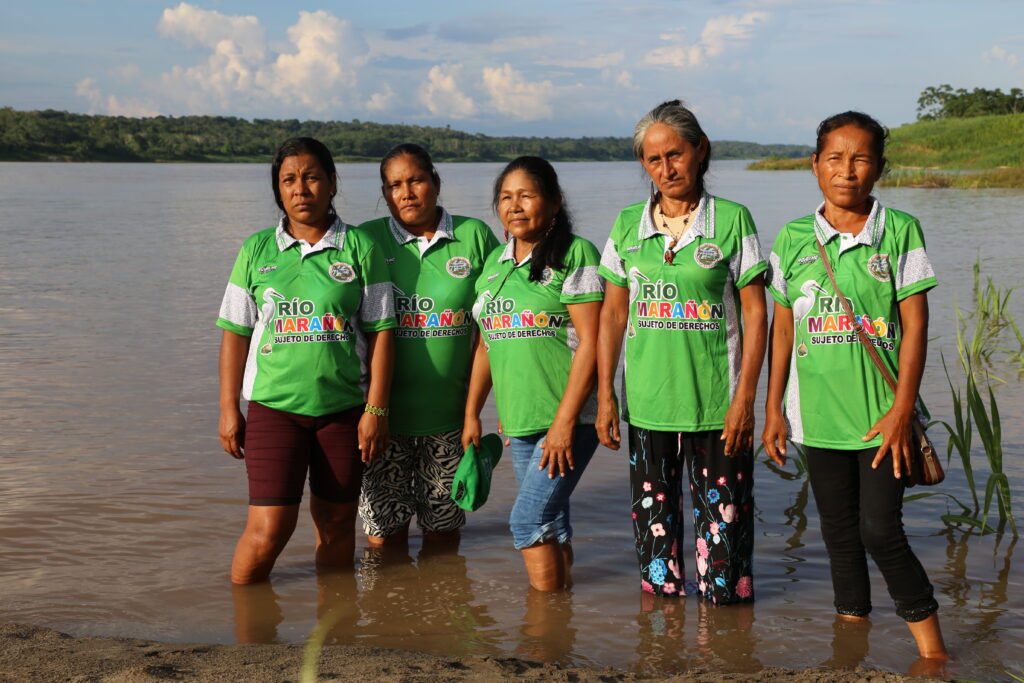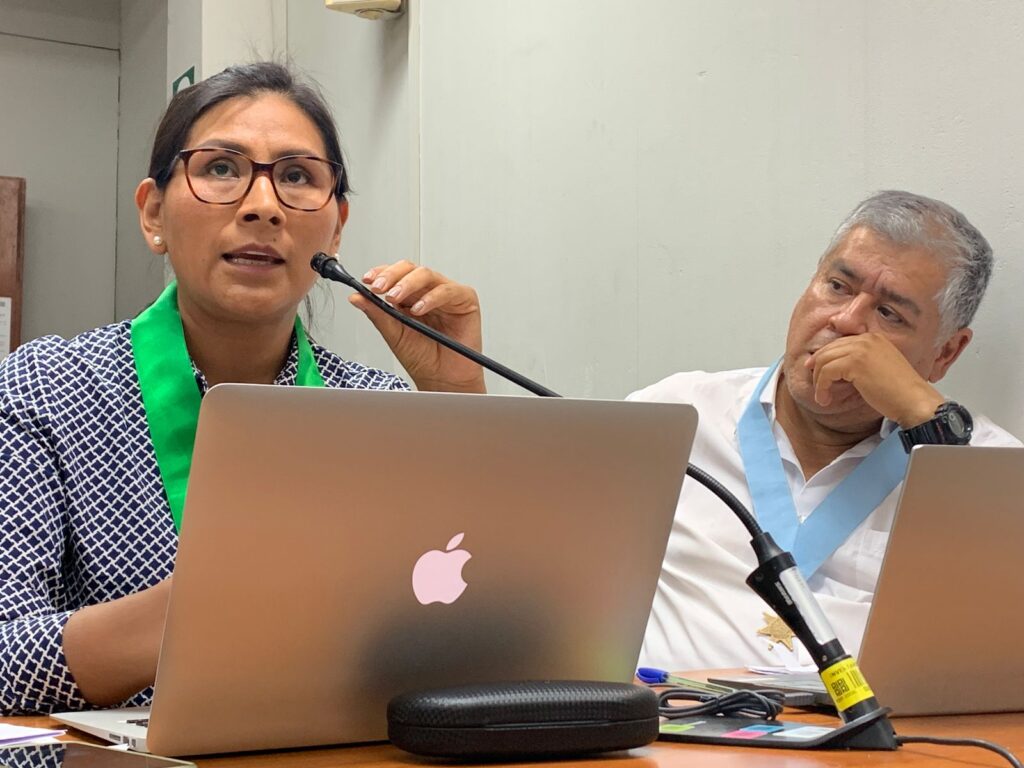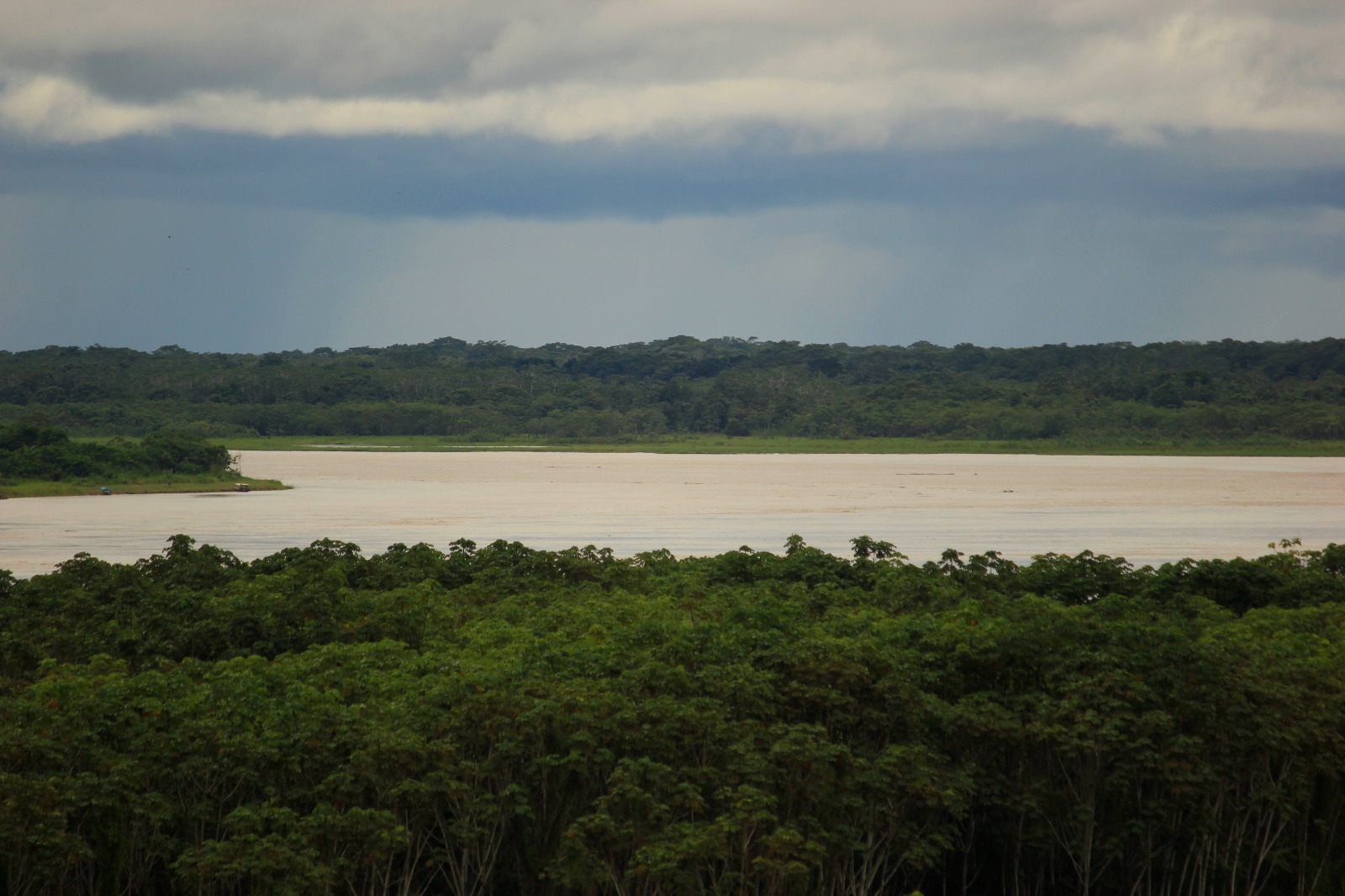In a historic milestone for the protection of the Marañón River, led by indigenous Kukama women of Peru, the Peruvian Mixed Court in Nauta ruled to protect the rights of the Marañón River
FOR IMMEDIATE RELEASE
Click here for the Spanish version
March 19, 2024
MEDIA CONTACTS:
Isadora Armani, International Rivers, iarmani@internationalrivers.org (English, Spanish, Portuguese)
Alexis Revollé, Instituto de Defensa Legal (IDL), arevolle@idl.org.pe (Spanish)
Peru – In a landmark decision in favor of rivers in Peru, the Mixed Court in the City of Nauta ruled that the Marañón River, one of the country’s most significant rivers and water sources and the first source of the Amazon, has an intrinsic value and it is recognized as a Subject of Rights codifying a series of inherent rights. The triumph marks the culmination of efforts led by the Huaynakana Kamatahuara Kana Federation, an Indigenous Kukama women’s group rooted in the Parinari district of the Loreto province and region. Since 2021, they have spearheaded a legal battle against the State and Peruvian authorities, demanding protection for the Marañón River from the constant oil spills from the Norperuvian oil pipeline operated by Petroperu. The communities that make up this federation are still dealing with the aftermath of the Saramuro oil spill in 2010.
The Marañón River is one of the most important rivers and freshwater sources in Peru and its headwaters are high in the Andes Mountains before the river flows through the Andean valley to become one of the mainstem sources of the Amazon River. The river has been impacted by more than 60 oil spills caused by Oleoducto Norperuano between 1997 and 2019. The river is also being harmed by impacts from infrastructure projects – such as hydroelectric dams and the Amazon Waterway – considered a risk by multiple agencies and organizations including the International Union for Conservation of Nature (IUCN). The river is also contaminated by mercury and other hazardous materials as a consequence of illegal gold mining.
In the constitutional protection process initiated in 2021 and supported by Instituto de Defensa Legal, International Rivers, and Earth Law Center, the Kukama women sought not only redress for environmental damages but also the fundamental recognition that the Marañón River and its tributaries be granted rights holder status.
The lawsuit targeted key actors, including the petroleum company, Petroperú; the Ministry of the Environment, the Institute of Research of the Peruvian Amazon (IIAP), the National Water Authority (ANA), and the Ministry of Energy and Mines. Also included are representatives of regional entities, such as the Executive Directorate of Environmental Management and the General Management of Indigenous Affairs of the Regional Government of Loreto.
In the ruling, the judge of the Mixed Court of Nauta recognized the intrinsic value of the Marañón River, codifying a series of intrinsic rights, among them: the right to exist; right to ecological flow; the right of restoration; the right to be free of pollution; right to exercise its essential functions with the ecosystem; right of representation. The court also went further to name the Peruvian government and the Indigenous organizations as guardians, defenders and representatives of the Marañón River and its tributaries. The Court further ordered that the regional Government of Loreto must take the necessary steps before the National Water Authority to create a water resource basin organization for the Marañón River and its tributaries; and ordered the oil company to prepare and present an updated environmental management instrument within six months to evaluate all the impacts of transportation and hydrocarbon activities on the river.
For Mariluz Canaquiri Murayari, president of Huaynakana Kamatahuara Kana, the Federation of Kukama Indigenous Women, “We are truly happy and grateful to everyone who has supported us. We also want to thank God for what we have achieved. It won’t end here; we will continue. It encourages us to fight to defend our territories and rivers, which is fundamental. The recognition made in this decision has critical value. It is one more opportunity to keep fighting and claiming our rights. Our work is fundamental for Peru and the world: to protect our rivers, territories, our own lives, and all of humanity, and the living beings of Mother Nature.”

Over the past years, the Kukama women, along with their lawyer Martiza Quispe Mamani, have navigated the justice system fighting for the protection of their fundamental right to health, sanitation, social, cultural, environmental, and economic rights and a dignified life. Now, their long wait for resolution may finally be nearing an end.
“This historic ruling is an important achievement of the Kukama women, Huaynakana Kamatahuara Kana, who have fought for the protection and defense of their rivers due to constant oil spills for many years,” says Martiza Quispe Mamani, the attorney representing the communities. “The fact that the judge of the Nauta Court has declared the Marañón River as a subject of rights represents a significant and transcendental milestone for the protection not only of the Marañón River but also of all rivers contaminated by extractive activities.”

To the international community, the decision by the Peruvian court can represent important progress for environmental restoration and the fundamental right to water. This case has progressed towards justice thanks to the work of Instituto de Defensa Legal, International Rivers, Earth Law Center, Forum Solidaridad Peru, Quisca, Radio Ucamara, Radio Voz de La Selva, WCS Peru, Instituto Chaikuni, the parish of Santa Rita de Castilla and the Bishop of Iquitos, Monsignor Miguel Ángel Cadenas, Father Manolo Berjón, Vicariato Apostólico de Iquitos, Mesa Regional de Lucha Contra La Pobreza (Regional Committee for the Fight Against Poverty), Broederlijk Delen, Global Alliance for the Rights of Nature and JCAP (Justice and Corporate Responsibility Project).
The recognition of the rights of the Marañon River and the Indigenous communities as its guardians represents a very important step toward addressing the persistent threats to the river and is a significant milestone for Peru and for the global community that has closely followed the struggle of the Kukama people.
The Nauta court’s decision marks a major win for river conservation in Peru, affirming the intrinsic value of the Marañón River and granting it the status of a Subject of Rights. This milestone underscores the vital impact of community-led advocacy in safeguarding river ecosystems and sets a crucial precedent for river conservation efforts globally. By recognizing the Marañón River as a Subject of Rights, this decision is significant not only in terms of environmental protection but also in advancing the rights of nature and the rights of rivers. It establishes a groundbreaking legal framework that acknowledges the inherent rights of natural entities, paving the way for similar legal recognition and protection of rivers worldwide.
Monti Aguirre, Latin America Director of International Rivers
“The recognition of the rights of the Marañón River and the indigenous communities as its guardians is the first step to restore many cumulative impacts that affect the Mranonriver basin. This historic decision is crucial for Peru and the international community that has closely followed the struggle of the Kukama people. This groundbreaking decision vindicates the rights and culture of the Amazonian populations in Peru.”
Javier Ruiz, Earth Law Center Expert in Environmental Policy and Climate Change
Marañón River photo credit: Miguel Araoz Cartagena / Quisca

